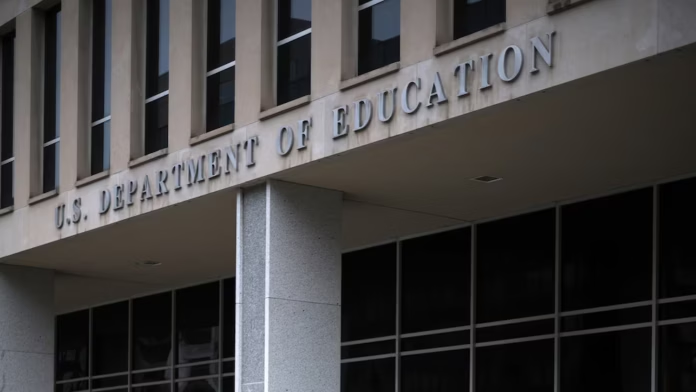From May 5, approximately 5 million defaulted student loan in America will be forced to pay the amount, a sudden change after a five-year standstill. With the move, the Department of Education indicates borrowers who have made no payments since more than 270 days ago will be exposed to severe outcomes such as wage garnishment and forfeited federal benefits.
Federal Student Aid Reduction Sparks Concerns
This news follows just weeks after the Department of Education started to lay off huge numbers of Federal Student Aid workers. Many fear this reduction will take away critical support systems for borrowers, particularly those attempting to apply for repayment plans or loan forgiveness.
Timing Couldn’t Be Worse for Struggling Borrowers
In the words of ex-Under Secretary of Education James Kvaal, the timing could not be worse. “The department is cutting the very people who help borrowers get back on track,” he said to ABC News. With staff levels reduced, assistance will be more difficult to find for those struggling with complicated financial aid systems.
Background: Loan Pause Began During COVID-19
The federal student loan moratorium started in 2020 under President Trump as a reaction to the economic turmoil brought about by COVID-19. It covered all 43 million borrowers. And, May 2025 is going to be the first time in five years where defaulted loans will be forcibly retrieved.
Also read: SpaceX Bandwagon-3 Launch: Second Flight Today from Cape Canaveral
What Happens When a Loan Defaults?
A loan defaults when a borrower is late on payments for roughly nine months. At that point, the government can legally recover the debt. This usually occurs through wage garnishment — when part of a person’s paycheck is withheld — or through tax refund offsets and Social Security deductions.
Government Defends Restarting Collections
The Department of Education, now under Secretary Linda McMahon, claims that restarting collections is all about protecting taxpayers. “Borrowers willingly took on these loans,” McMahon stated. “Taxpayers shouldn’t be on the hook for the fallout of irresponsible decisions by past administrations.”
Debt Forgiveness Not an Option, Says McMahon
She also rebutted any supposition that the government can just call off loans. “Debt does not disappear. Already, hundreds of billions have been passed to taxpayers. We need to return to a legal, responsible course of action.”
Also read: Shannon Sharpe Sued For $50 Million: Shocking Allegations Revealed
Critics Call Move Cruel and Unnecessary
Critics say this action would ravage working families. Mike Pierce, Executive Director of the Student Borrower Protection Center, called it “cruel and unnecessary.” He cautioned that making people go to collections will only make it even more difficult for them to dig out of debt and get back on their feet.
The timing is also causing eyebrows to be raised because of President Trump’s recent revelation that student loans will be transferred under the authority of the Small Business Administration. This shift can cause even more confusion, particularly since millions of borrowers would be trying to navigate an already fragile system.
Promised Government Outreach Efforts
The government indicates it will accompany the collections with a large outreach campaign. Officials state they will teach borrowers how to re-enter repayment or leave default status. But with fewer workers and more uncertainty, many experts doubt how successful this campaign will be.
Borrowers Face Financial Consequences
It’s evident that the student loan system is in the midst of a revolutionary change. From staffing reductions, organizational changes, and the dismantling of long-established shields, borrowers are on the cusp of a serious period of uncertainty.
Prepare Now or Pay the Price
As May 5 nears, millions risk losing paychecks, tax refunds, or even Social Security checks. And though the government says this is all about responsibility, many Americans fear the cost will hit those already struggling hardest.
For debtors with delinquent loans, the warning is explicit: get ready now, or expect severe financial ramifications in a matter of weeks.








